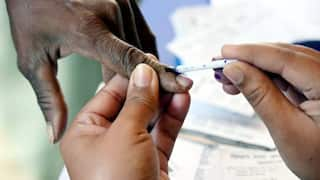Antimicrobial Resistance: A Fight India Cannot Afford To Lose
Antimicrobial resistance is not only intrinsically linked to human health and behaviour, but also inherently connected with our entire ecosystem including animal health, food production & environment.

Just over a couple of years ago now, when first reports of the Covid-19 pandemic had begun to cause anxiety worldwide, we as a community had already been concerned for many years before that, about the equally complex but deviously subtle threat of antimicrobial resistance (AMR), that was rapidly spreading its devastation and emerging as an indomitable threat to humanity worldwide.
That threat still exists and has assumed even greater significance over the years. Today, a Global AMR response has become the core mandate for the World Health Organization (WHO), with pertinent efforts to coordinate the global response to AMR in collaboration with key partners, calling AMR one of the most urgent health threats of our time.
In the Indian context, a recent report from the Antimicrobial Resistance Research and Surveillance Network of the Indian Council of Medical Research (ICMR) reviewed data collected from the network and revealed alarming figures of a staggering 95,728 culture positive isolates of key priority pathogens during the period from January 1, 2021 to December 31, 2021, thereby providing a glimpse into the enormity of the problem on hand in the Indian subcontinent.
This phenomenon is not only intrinsically linked to human health and behaviour, but also inherently connected with our entire ecosystem including animal health, food production, agriculture and the environment. It is obvious to all of us today that the implementation of AMR containment efforts requires intense collaboration and sustained solidarity to support context specific AMR interventions at the global level. The emergence of resistance is likely to be specific to each drug and to each microorganism, as well as the effect of changes in its use. There is also the need for addressing an integrated approach to be adopted across both community and healthcare structures.
The complexity of the AMR crisis and its global impact on healthcare makes it extremely important to understand the problem in depth and to conceive and implement innovative solutions. A better understanding of resistance mechanisms could facilitate novel approaches to diagnostics and therapeutics. It is evident that several complementary, overlapping, collaborative and synergistic approaches with common goals will be essential to ensure and sustain access to effective antimicrobial therapies. In this manner, increasing the resiliency of our innate immune system or attenuating the virulence mechanisms of the pathogens can be explored to improve therapeutic outcomes.
Innovative alternatives to classical antibiotics such as bacteriophage therapy, novel engineered peptide antibiotics, ionophores, nanomedicines, and repurposing drugs from other domains of medicine to boost innate immunity are beginning to be successfully implemented to combat AMR. Policy changes supporting shorter durations of antibiotic treatment, greater antibiotic stewardship, and increased surveillance measures can enhance patient safety and enable implementation of the next generation of targeted prevention and control programmes at a global level.
Antimicrobial stewardship has been recognised as a key component of the fight against AMR. A comprehensive understanding of why antimicrobial prescriptions are often provided without diagnostic testing could help to restrict the inclination to use antimicrobials indiscriminately. Understanding and evaluating the relative contribution of different drivers of AMR development could greatly facilitate rapid progression toward a global solution for AMR.
In this regard, developing effective strategies and interventions in the Indian context, planning effective antibiotic stewardship in India, promoting investments for AMR activities, research and innovation, as well as strengthening India’s commitment on AMR are of paramount importance.
It is also important to be aware of the fact that beyond optimisation of antimicrobial use, development and implementation of robust infection prevention and control initiatives at the local and national levels should be established to curtail onward transmission of antimicrobial resistant microbes. It is noteworthy that emergence and transmission of AMR is modulated by quality and standards of infection control, sanitation, access to clean water as well as access to good quality of antimicrobials.
It is in this framework of taking into account the fact that AMR has certainly compromised our ability to treat infectious diseases, the WHO set up the five strategic objectives of the Global Action Plan on AMR:
- Improve awareness and understanding of AMR
- Strengthen knowledge through surveillance and research
- Reduce incidence of infection
- Optimise use of antimicrobial agents
- Develop sustainable investment for the needs of all countries and increase investment in new medicines, diagnostic tools, vaccines and other interventions.
The National Action Plan (NAP) to combat AMR in India is also aligned along the objectives of the Global Action Plan on AMR.
It is now obvious, that along with other global challenges that threaten human existence and the planet, global cooperation is an absolute necessity to reduce the evolution and spread of AMR. In fact, addressing AMR as a public health issue requires a multisectoral and transdisciplinary ‘One Health” approach at the local, regional, national and global levels.
Ultimately in the words of Joshua Lederberg, the 1958 Nobel Laureate for Physiology and Medicine, – “This is a battle we cannot afford to lose". However, we have to be cognizant of the fact that this is a battle between ‘Our Wits and their Genes’. As of now those microbial genes seem to be definitely holding sway, leading up to AMR—the next pandemic in the making.
Dr. Bipin Nair is the dean at Faculty of Life Sciences, and Dean, School of Biotechnology, Amrita Vishwa Vidyapeetham, Kollam, Kerala, India. Dr. Geetha Kumar is a professor at School of Biotechnology, and Dean, School of Physical Sciences, Amrita Vishwa Vidyapeetham, Kollam, Kerala, India.
[Disclaimer: The opinions, beliefs, and views expressed by the various authors and forum participants on this website are personal.]
Check out below Health Tools-
Calculate Your Body Mass Index ( BMI )
Calculate The Age Through Age Calculator





































